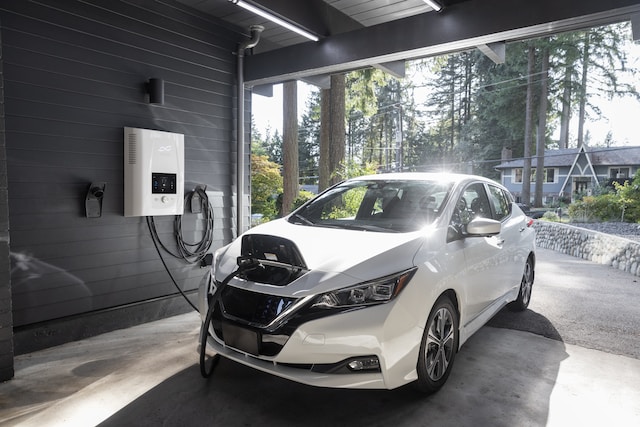Contents
- 1 Introduction
- 2 You’ll pay extra for an electric car.
- 3 You may not be eligible for the federal tax credit.
- 4 Electric cars are more expensive than gas-powered cars.
- 5 You’ll need access to a charging station.
- 6 You may want to install solar panels at home.
- 7 Some states offer additional perks for EV owners.
- 8 Consider the pros and cons of owning an EV before making a decision.
- 9 Conclusion
Introduction
Electric cars are slowly gaining popularity. A few years ago, you could count all the electric vehicles on one hand. Now there are plenty of options to choose from, and they’re becoming more affordable over time. Still, there are some things you should consider before buying an EV: it’s not right for everyone, and it may not be exactly what you expect in terms of performance and cost. Here’s what we’ve learned about owning an electric car over the past few years (and why I’m still glad I did).
You’ll pay extra for an electric car.
You’ll pay extra for an electric car.
Electric cars are more expensive than gas-powered cars and they require more maintenance, repair and insurance. That’s because they’re powered by batteries that need replacing every few years–and those batteries aren’t cheap (in fact, they’re often more expensive than the rest of your car). And since you can’t just fill up at the pump anymore, it’s important to consider how much money you’ll spend on electricity and where your charging station will be located before making a final decision about what kind of vehicle is right for your lifestyle
You may not be eligible for the federal tax credit.
If you’re not eligible for the federal tax credit, it’s still worth considering an electric car. You may qualify for state and local incentives that will help offset the cost of your purchase. For example, New York City offers a $2,000 rebate on qualifying vehicles purchased between July 1 and December 31 of this year; California residents can get up to $2,500 in state rebates depending on their income level and type of vehicle purchased; Colorado offers up to $5,000 in credits toward new hybrid or electric cars (or up to $7,500 if your car is powered by electricity alone).
Many cities also offer free charging stations where owners can charge their cars at no cost while running errands or stopping for lunch–a perk that could save you money over time as well!
Electric cars are more expensive than gas-powered cars.
You may have heard that electric cars are more expensive than gas-powered cars. While this is true, it’s not always the case. The price of an electric car can vary greatly depending on which model you get and what features it has. For example, if you’re looking for a sporty sports car with lots of bells and whistles, your bill will be higher than if you were to buy an entry level sedan.
A lot of people also wonder how much electricity costs per mile driven on an electric vehicle (EV). This varies widely depending on where in the country you live as well as whether or not your home is connected to solar panels or wind turbines (more on those below). In general though, according to AAA’s website: “The cost per mile driven by EVs nationwide averages out at around $0.37 per gallon equivalent when compared against gasoline at $2/gallon.”
You’ll need access to a charging station.
If you’re buying an electric car, you’ll need access to a charging station. They’re being installed in many places–at public locations like highway rest areas and shopping centers; at restaurants and hotels; even at private residences. You might even want to install one yourself at home if you don’t have easy access to public chargers (though this will likely require some serious legwork).
If you can’t find a place near your house or office where it’s convenient for people who drive gas-powered cars to charge up their vehicles, then maybe it’s time for some creative thinking about how we use our cars in general!
You may want to install solar panels at home.
- You may want to install solar panels at home.
- Solar power is a great way to reduce your carbon footprint and save money on electricity bills, but it can be expensive. The good news is that there are government incentives that can help offset the cost of installing solar panels on your house or community solar farm (where you invest in a shared system).
Some states offer additional perks for EV owners.
In addition to the federal tax credits and rebates, some states offer additional perks for EV owners. The following are just some of the benefits that may be available in your area:
- Free parking in city-owned garages and lots
- Access to carpool lanes on freeways (some states have laws prohibiting this)
- Free charging at public stations or workplaces with charging stations
Consider the pros and cons of owning an EV before making a decision.
Before you make a decision about buying an electric car, it’s important to consider the pros and cons of owning an EV.
Pros: Better for the environment, cheaper to run and maintain
Cons: More expensive to buy, limited range (the distance you can travel before your battery runs out), charging takes time
Conclusion
There are a lot of factors to consider when making the decision to buy an electric car. The good news is that most of them are positive; these cars are better for the environment, they save you money on gas and maintenance costs over time, and they can even help reduce your carbon footprint! But there are still some downsides to consider before taking the plunge into EV ownership. For example, if you don’t have access to charging stations or solar panels at home then it might not be worth investing in one just yet (unless you live somewhere like California). And remember: just because something sounds good doesn’t mean it’s right for everyone!

